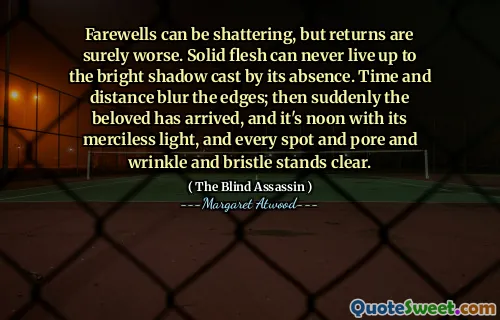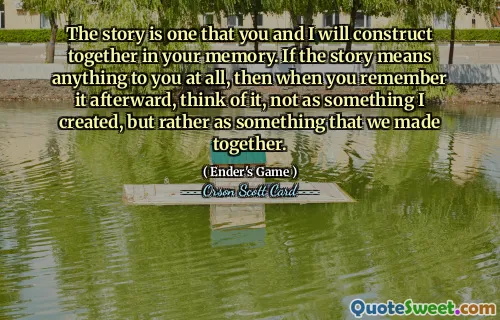Happiness is a garden walled with glass: there's no way in or out. In Paradise there are no stories, because there are no journeys. It's loss and regret and misery and yearning that drive the story forward, along its twisted road.
In "The Blind Assassin," Margaret Atwood presents a profound reflection on happiness, likening it to a garden enclosed by glass, suggesting a sense of isolation and inaccessibility. This metaphor implies that true happiness can feel unattainable, as if it exists in a separate realm where entry and exit are impossible. The idea challenges the notion of paradise, implying that without the presence of struggle and human experience, there can be no meaningful narratives in life.
Atwood emphasizes that stories arise from the complexities of life, particularly through experiences of loss, regret, and longing. These emotions serve as catalysts for character development and plot progression, indicating that the rich tapestry of human experience is woven from both joy and sorrow. Thus, the essence of storytelling lies not in the perfect moments but in the journeys shaped by adversity and yearning, illustrating a deep understanding of the human condition.

